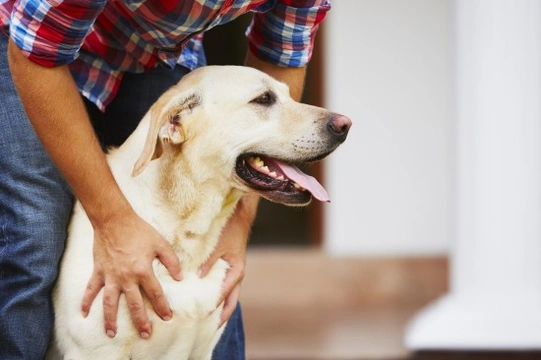
Do Owners Influence a Dog's Behaviour?
Although inherited genes form a great part of how a dog behaves, outside influences can have a bearing on their behaviour too and this includes how they think and reason things through as well as how they may react to things. Outside influences can even mould a dog's attitude. It would be fair to say that no two dogs which boasts similar inherited genes would lead the same type of life. This is because they are bound to be exposed and come into contact with different things in their own particular environments. What dogs learn from an experience will be filed away in their minds which means each one will have a bearing on future behaviour.
Each Dog is Different
Each and every dog is different with their own unique personalities. Some dogs are braver than others and some dogs are quicker to learn things than others. The differences might be slight but they exist and as such all dogs learn things and remember things in different ways depending on their characters. The earlier a dog is introduced to things and situations, the more chance they have of remembering a good experience and therefore they will be braver and more confident mature dogs.
In short, this means people do have an influence on how a dog's character will turn out. If your dog has bad experiences at an early age this will have a negative impact on their personalities. However, should they have good experiences they will be happier more outgoing characters all round.
Dogs Have Their Own Logic
Our lovely canine companions have their own logic, they are unable to work things out the way a human does. With this said, a dog will develop their own unique logic which can be due to inherited genes but it can also be due to what they have learnt through past experiences – whether these are good or bad. Very often, dogs develop both in conjunction with each other namely an inherited logic and one that's learnt and which has been influenced by their owners.
The Art of Positive Reinforcement Training
All puppies need to be well trained and socialised from a young age but this external influence has to be positive so they grow up to be well balanced dogs. More importantly, they will behave in such a way that fits in and is appropriate to their environment and their owner's lifestyle. It goes without saying the earlier an owner starts to influence the way a dog reasons, the better their responses will be to them.
However, if you are thinking about adopting a rescue dog from an animal shelter, the chances are you would have no idea of how they were treated or indeed trained when they were puppies. The good news is that dogs continue to learn and absorb new things throughout their lives although the process is that much slower and trainers need to use a lot more in the way of positive incentives.
Routine and Habit are Your Best Friends
Dogs much like people, develop behavioural patterns which as they get older become ingrained and which have been instilled in them by their owners. Routine and habit are a dog owner's best friend because consistent training and reward works wonders with our canine friends. However, the reverse is also very true so if a dog is allowed to habitually get away with things they should not do, the result is typically unwanted behavioural problems which are that much harder to correct.
The problem is that certain breeds like the Border Collie are so strongly wired genetically to do what they are very good at doing which is to herd that even with the best outside influence, this behaviour can be hard to curb. They are not being "bad" dogs, they are simply carrying out what they have been bred to do over a very long period of time which is why they do not make a great choice of pet for people who lead more sedentary lives or who live in cities.
Understanding the Best Character Traits in a Dog
It's really important to understand the best character traits a dog might have inherited and then build on these to suit your lifestyle. If you have decided to offer a rescue dog a second chance, it's important to understand your new canine friend may not just "turn out" the way you had hoped and that you need appreciate their limitations, weaknesses as well as all the positives they will bring into your home.
It is also crucial to differentiate between inherited behaviours and those which have been developed through outside influences – whether good or bad. It can take quite a bit of time getting to know what a rescue dog likes and dislikes, what they are afraid of and what they feel confident with which means you would need to show them lots of patience being careful not to tell them off in a harsh way when they get it wrong.
Conclusion
A dog's character and the way they behave is strongly influenced by both inherited genes and experiences they have throughout their lives, beginning when they are puppies. A well trained and socialised dog has been influenced by the people they spent time with so when it comes to whether owners do influence their pet's behaviour, the answer is definitely "yes" and this includes both the good and the bad!



